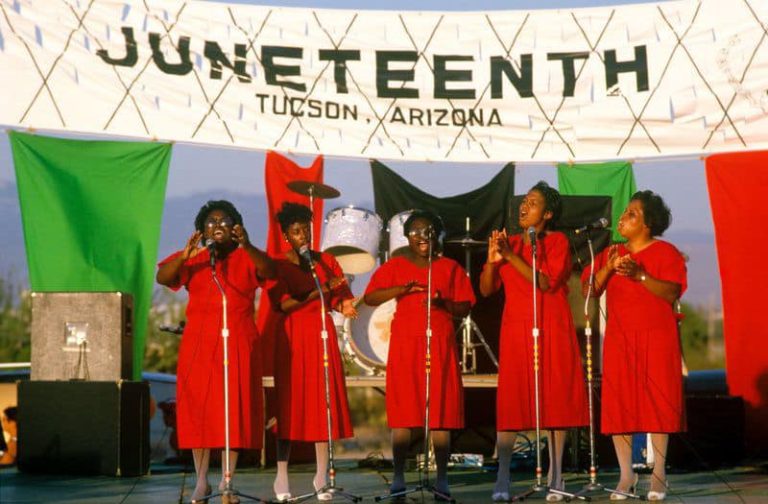by: J. Pierce
Juneteenth is a holiday filled with exuberance and pride, a celebration of Black life and culture. But as it takes hold as a Federal Holiday, will Juneteenth be co-opted by white America, sponsored by Wells Fargo and the Border Patrol? Or will Americans of all backgrounds start celebrating the resistance to slavery and the destruction of the evil cancer of racism? As it expands, Juneteenth could take on new meanings that we never could have imagined. Juneteenth could be a crack in the dam: it might just be a harbinger of a new era in American history.
Juneteenth in Arizona

According to a few Arizona websites, African Americans have been celebrating Juneteenth in Phoenix, for example, since at least 1911. Small Juneteenth events were typically organized through Black churches in both Phoenix and Tucson in the 1910s, the 1930s, and revived again in the late 1960s. As many Arizonans of African descent were originally from Texas, the Juneteenth tradition came with them to the Copper State.
Vernell Myers Coleman, originally from Henderson, Texas, was instrumental in reviving Juneteenth in Phoenix. A long time community activist, who, incidentally, led a successful 1970 rent strike at the Mathew Henson housing project, had attended a Juneteenth celebration at First Colored Baptist Church in 1938. Fifty years and decades of activism later, she initiated a Juneteenth festival in 1968 held at Paul Laurence Dunbar Elementary School in South Phoenix.
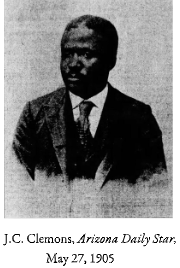
Moving from Burleson, Texas, Anna and her husband J.C. Clemons, a labor rights supporter and President of the Civil Rights Club in Tucson, advertised their event on June 19th, 1910 as the “Greatest Emancipation Celebration in the History of the West.” Holding their popular gathering along the banks of the Rillito, the Clemons’ asserted that, “You will always find the colored men of Pima county right in line in the front ranks of progress and enterprise.” Juneteenth was revived in Tucson in 1970 by the residents of the A Mountain neighborhood.
In getting some perspectives on Juneteenth, I had the good fortune to talk to Ahmad Daniels, an activist, a “freedom fighter 24/7”, in the Black Liberation movement since his younger years in the US Marines and a past mentor to some of us in the Phoenix IWW. Ahmad talks of Juneteenth as an occasion of both “mourning and celebration”. Since the history of slavery and emancipation impacts everyone, he says that Juneteenth is something that can be “revered” by all of us.
“America loves to tell a false story of itself,” Ahmad says. “It is constantly perpetuating the lie of a great and noble country, a sanitized history. A lot was gained with the end of the Civil War and Reconstruction. African Americans made a lot of progress in every area of life and were looking forward to a brighter day. But right away, whites attempted to roll back all of the gains made during those years.”
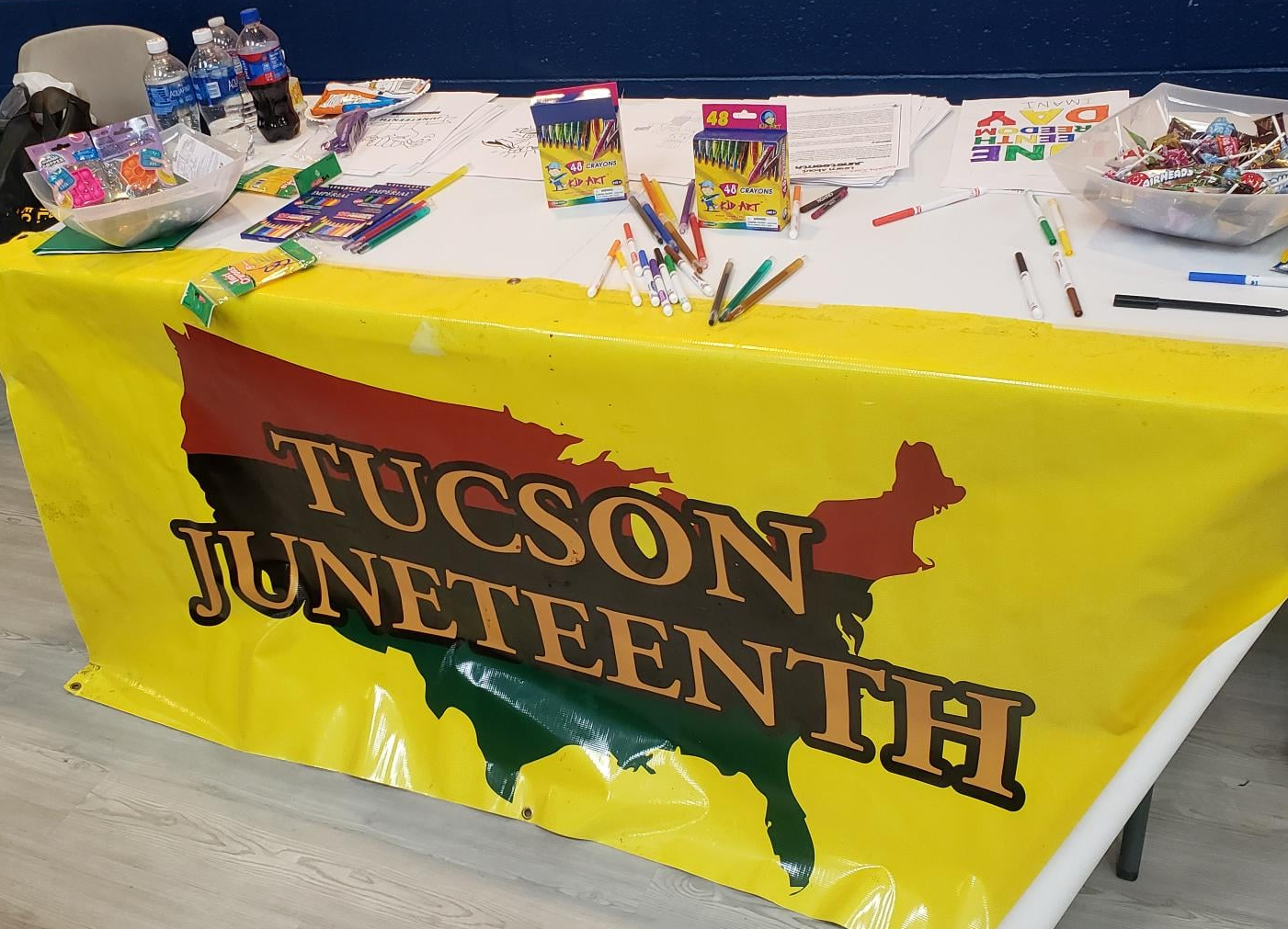
Ahmad says that once a person starts to study what really happened: the brutality of slavery; the record of Black resistance; the bitterness on the part of whites against any attempt at progress; the widespread violence employed during and after Reconstruction – after learning all this, a person has to “throw out everything they learned in school. They have to throw out everything that they were taught by their daddy and their mama. But you have some people, those watching Fox News day after day, those people might choose to live in that bubble.”
“I see Black people as midwives to America, helping the birth of a new Freedom. But every time there is a chance at a new birth of freedom, a new era for America, like during Reconstruction, white supremacy manages to get a noose around the neck of the baby and strangle it before it can live and grow.”
To Ahmad, Juneteenth is a chance to keep fighting and changing the world around us: “Dr. King asked are we a thermometer, simply registering the temperature, ‘recording the ideas and principles of popular opinion’, and adjusting our behavior accordingly? Or are we a thermostat changing the temperature, a mechanism to ‘transform the mores of society’? Dr. King said we should be the latter and not the former.”
In terms of a visual metaphor for Juneteenth, he says: “I see us chiseling away at a large block of stone, chips flying off in every direction. We are always chiseling away, making slow and steady progress.” He admonishes us to remember that “Juneteenth is more than a one day occurrence; it is an acknowledgment that the Black liberation struggle is on going. The lessons learned regarding Juneteenth is a reminder that victory can and will be won.”
American History is itself a site of struggle
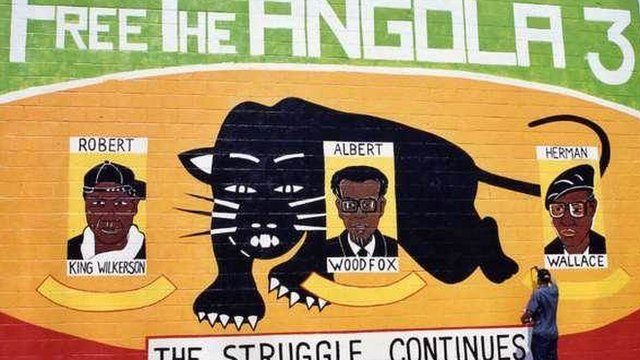
For Ahmad Daniels, history is not something that is stuck in the past. It is a living struggle in the here and now. He gives the example of Angola Prison in Louisiana. Its proper name is the Louisiana State Penitentiary but the nickname “Angola” comes from the former plantation that was right there on that land. The plantation name, of course, comes from the African country where many slaves were stolen from. “Angola is the largest maximum security prison in the United States, larger than the size of Manhattan. The prison population is 76% Black, and there they are, working on a modern plantation. It’s slavery by another name.”
Ahmad is among the many freedom fighters who employ history as a tool to invigorate the ongoing struggle. Nikole Hannah-Jones’ 1619 Project; the National Museum of African American History and Culture in Washington, D.C.; the removal of Confederate flags, statues, street names, school names, etc. (shout out to Take Em Down NOLA); and countless other efforts – all these are current expressions of a much older urge to tell the truth about America’s past. This yearning for the full story is only now hitting the front pages. However, to cite just two examples, Black Reconstruction in America by W.E.B. Du Bois and C.L.R. James’ Black Jacobins, about the Haitian Revolution, were published in 1935 and 1938 respectively and still stand as triumphs of a searing reality. These masterpieces helped to wrench the truth from the abyss; to rescue the story of racism and resistance from the tidal wave of cynical and false narratives about the slave era, concocted during and after Reconstruction by white historians, Confederate sympathizers, racist school teachers, and all classes of Americans who should have known better.
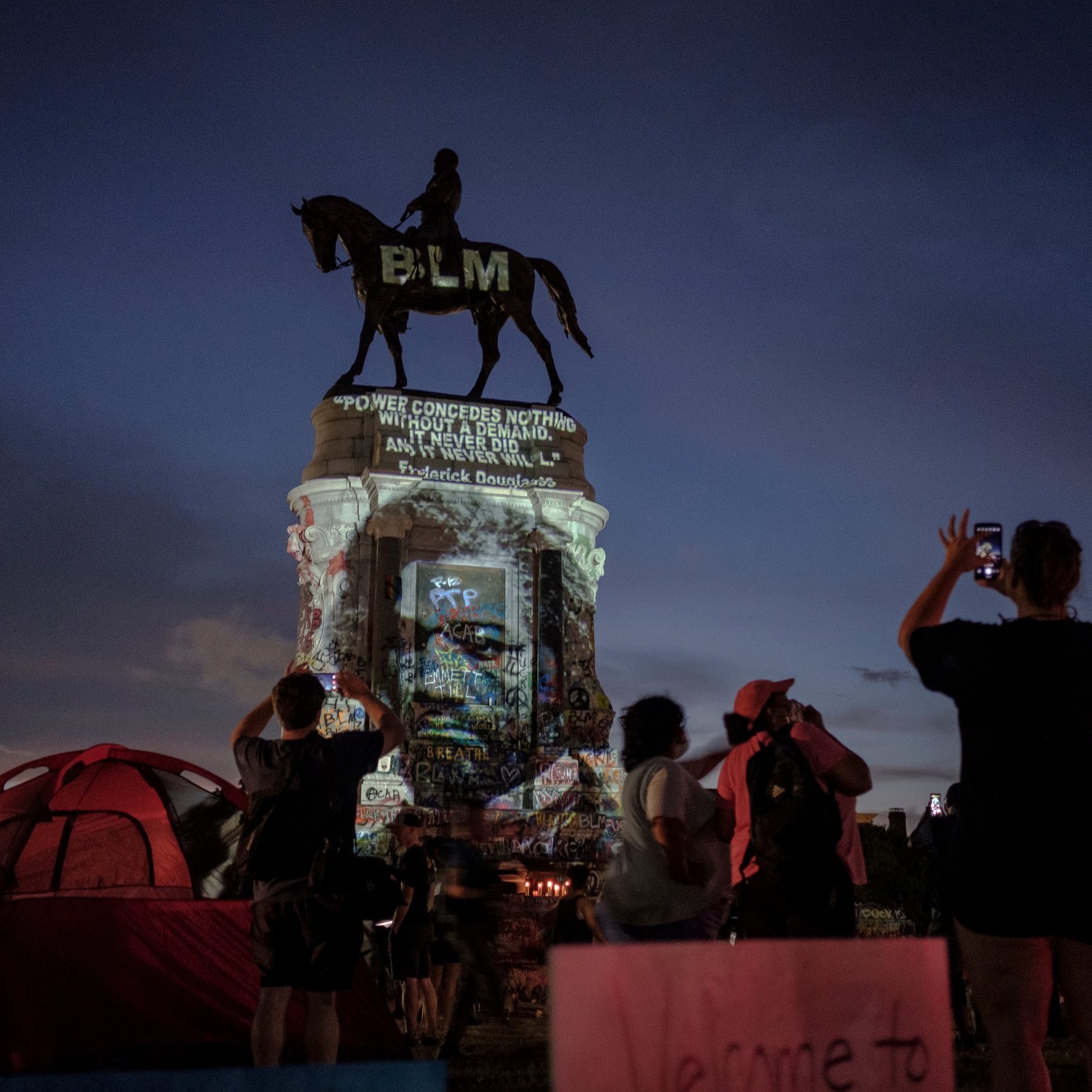
The statutes on Monument Avenue in Richmond, Virginia, are a perfect symbol of the changing times. It was barely conceivable only a few years ago that these colossal tributes to white supremacy would ever be torn down. As the mass uprising against police oppression surrounding the murder of George Floyd took over city after city in 2020, the Black community of Richmond took direct action to deface and occupy the Robert E. Lee statue. Through a round-the-clock occupation and ‘next level’ graffiti, the community’s determination forced the City of Richmond and the State of Virginia to throw ol’ General Lee under the bus and order he and his horse and his huge pedestal to be removed. Dozens, if not hundreds, of smaller and more accessible monuments to white supremacy were and have been ripped down by citizens across the country during and since the uprising of 2020.
Both the Lee statue in Richmond, and for the Nazis defending it, the one in Charlottesville, VA, acted as appropriate symbols of the fraudulent version of US history. And for good reason. White America has been trying to normalize, justify, cover up, minimize, dismiss, and now forget the world-historic crime of African slavery since day one. Just look at the frothing virulence of the conservatives who say they are opposing “Critical Race Theory” but pretty much know they are simply against teaching anything about race and racism. Remember the ban on the Chicano Studies program in Tucson Unified School District? Same thing. We, as a country, haven’t even begun to come to terms with the slave era, not to mention the genocide of Native Americans, the invasion of Mexico and the Philippines and Hawaii and the Dominican Republic and Haiti and the list goes on. Why do some see the re-writing of history as such a threat?
Uncle Sam’s Personality Disorder
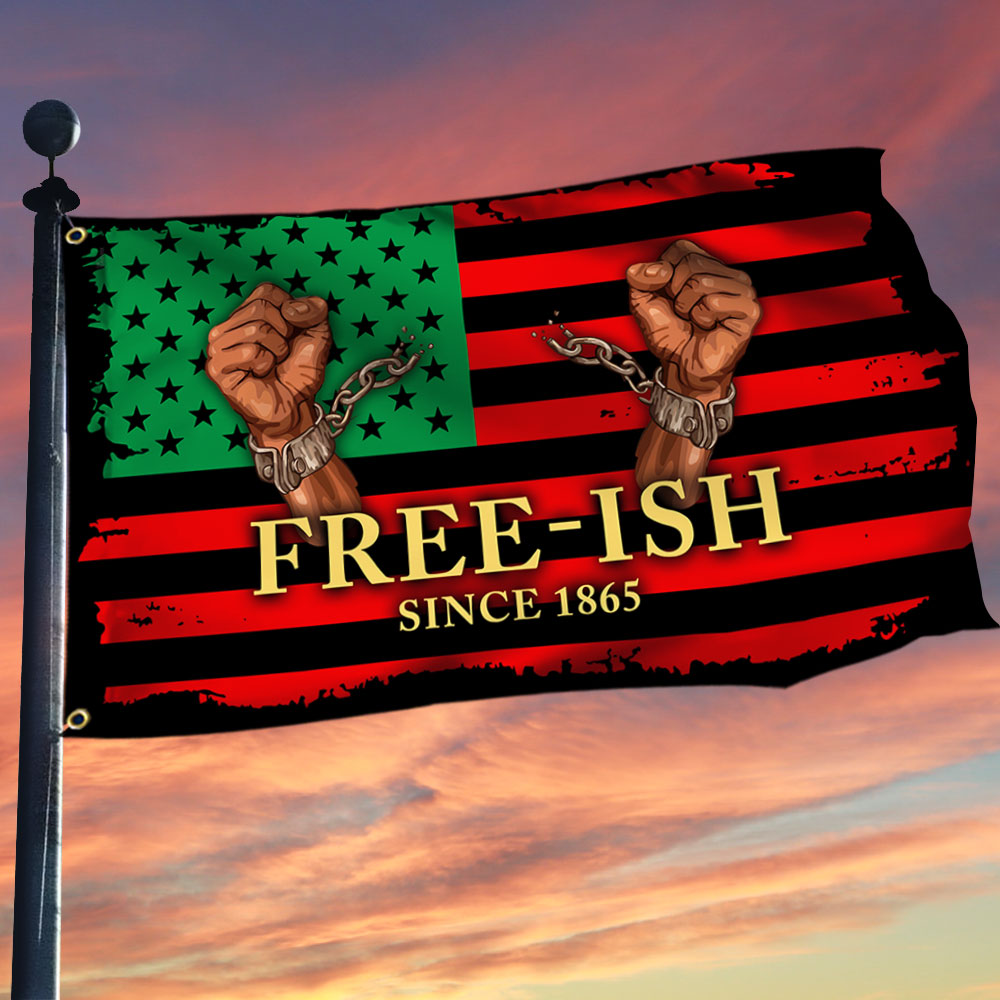
The tag line of Juneteenth is going to be under debate for a while, we can assume, with phrases like “Freedom Day” “the true Independence Day” “my Independence Day” and my favorite, “Free-ish since 1865”. As a local festival of the Black community, there is not much under debate. But as a new Federal Holiday that all Americans are going to be celebrating and joining, Juneteenth and its meaning might develop a serious personality disorder.
We, in America, have never quite been on the same page when it comes to what we stand for. Take “Freedom” for example: this seven-letter word has been quite a conundrum for Americans since the days of old, given that it refers to both the Freedom to own slaves and the Freedom to not be held as a slave. Put another way, freedom refers to the rights of your class. Do you believe in the freedom of workers to control their lives and the conditions under which they choose to work? Or do you believe in the freedom of employers to control the lives of their workers and the conditions under which their employees must work? We, in the IWW, assert that Freedom refers to the rights of workers and the proper word for the legal privileges of the business owner is Wage Slavery.
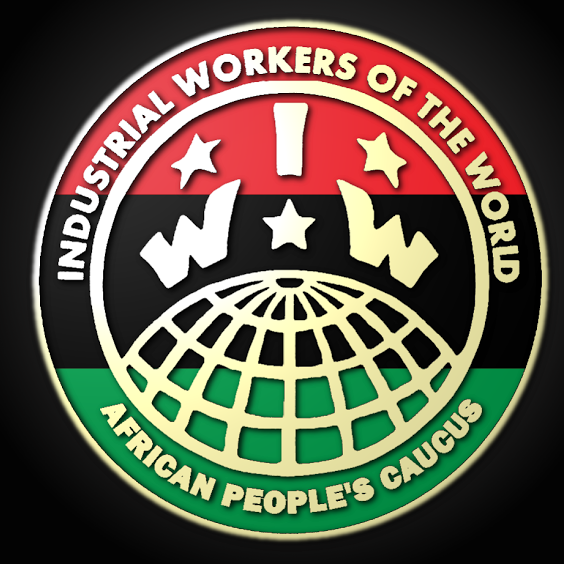
The IWW is fighting to end the new slavery
What does this all mean for a Revolutionary Union like the IWW? Though giants like Frederick Douglass and John Brown did their bit to destroy chattel slavery, wage slavery yet reigns supreme. As the apt phrase “Free-ish since 1865” alludes to, the Abolition of chattel slavery, though a towering conquest, was supplanted by massacres, sharecropping, lynching, and apartheid. Wage slavery became the order of the day, enforced through violence.
The violence used to enforce wage slavery is so commonplace, that we hardly recognize that it’s there. But become someone who won’t conform to cutting-edge exploitation, and the full weight of the state’s repressive apparatus will fall upon you. Are we free? To paraphrase a quote, “The modern worker drags an invisible chain behind her all around town. But sooner or later the chain must pull her back to a miserable job, paying only the minimum to keep her alive.” The modern wage slave, just like her ancestors, can scarcely picture in the mind’s eye a world of true freedom, let alone describe it to friends and family without be ridiculed.
Juneteenth gives us an opportunity to celebrate the end of chattel slavery. But how many centuries must pass until we can celebrate the end of capitalism? As white America is confronted with its sinister legacy, Juneteenth might just become the torch-bearer of the New Society.


